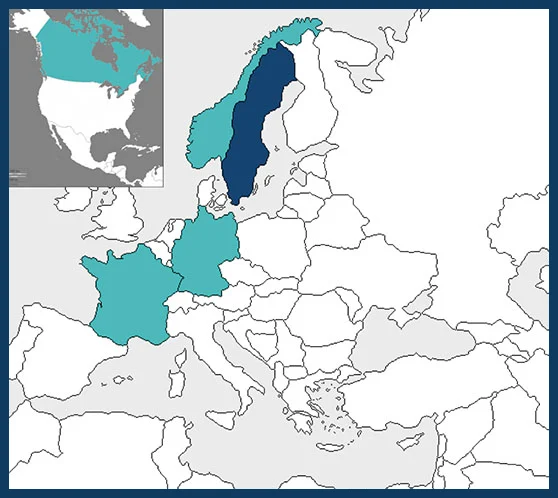12-2013 to 12-2016
€1 100 388
Jörgen Johnsson
jorgen.johnsson@bioenv.gu.se
University of Gothenburg – SWEDEN (Coordinator)
Leibniz Institute of Freshwater Ecology and Inland Fisheries – GERMANY
Nowegian Institute for Nature Research – NORWAY
Université Paul Sabatier/CNRS – FRANCE Memorial University – CANADA

Millions of non-native fishes (both species and genotypes) are regularly released into the wild in Europe, either intentionally by stocking or non- intentionally by escapes from aquaculture. Non-native fishes can become invasive and constitute a continuous threat to biodiversity.
Salmonids are an iconic fish family of great socio-economic and cultural importance in Europe. They are widely distributed in marine, coastal and freshwater ecosystems, and are also cultured and released in large numbers into the wild. Often non-native genotypes are transferred across catchments resulting in ecological and genetic impacts on wild fish. Overall, salmonids constitute an excellent model system to study the causes and consequences of invasions, which this project uses in an integrated approach that combines ecological, evolutionary, fisheries biological and socio-economic approaches.
SalmoInvade aims at studying salmonid fishes as potentially invasive species/genotypes, and at understanding the psychological, economic and governance conditions and pathways by which humans relate to these fishes. Ultimately, the SalmoInvade project is willing to develop the foundation for sustainable salmonid management in Europe in light of the societal desire to curtail their invasion potential.
SalmoInvade will concentrate on the following issues:
1. Understand the invasion potential of non-native salmonids in nature,
including genetically modified and non-native genotypes, and their
ecological and genetic impacts
2. Reveal the biological and social mechanisms of establishment of
non-native salmonids
3. Understand how the public and stakeholders in various European
cultures conceptualize and rationalize biological invasions and their own engagement in the spread of non-natives in light of their perceptions about complex concepts such as biodiversity and biological invasions.
To reach these goals, SalmoInvade will bring together experts with complementary competences in genetics, ecological, human dimensions and environmental economics, revolving around the important model systems “salmonid species”.
The projects outputs will be disseminated to relevant stakeholders and SalmoInvade will provide well-informed, integrated recommendations for policy and management of salmonid invasions.